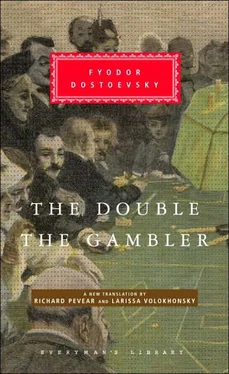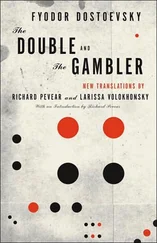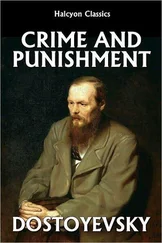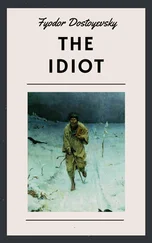Fyodor Dostoevsky - The Double
Здесь есть возможность читать онлайн «Fyodor Dostoevsky - The Double» весь текст электронной книги совершенно бесплатно (целиком полную версию без сокращений). В некоторых случаях можно слушать аудио, скачать через торрент в формате fb2 и присутствует краткое содержание. Жанр: Классическая проза, на английском языке. Описание произведения, (предисловие) а так же отзывы посетителей доступны на портале библиотеки ЛибКат.
- Название:The Double
- Автор:
- Жанр:
- Год:неизвестен
- ISBN:нет данных
- Рейтинг книги:4 / 5. Голосов: 1
-
Избранное:Добавить в избранное
- Отзывы:
-
Ваша оценка:
- 80
- 1
- 2
- 3
- 4
- 5
The Double: краткое содержание, описание и аннотация
Предлагаем к чтению аннотацию, описание, краткое содержание или предисловие (зависит от того, что написал сам автор книги «The Double»). Если вы не нашли необходимую информацию о книге — напишите в комментариях, мы постараемся отыскать её.
Poor Folk.
The Double
The Double — читать онлайн бесплатно полную книгу (весь текст) целиком
Ниже представлен текст книги, разбитый по страницам. Система сохранения места последней прочитанной страницы, позволяет с удобством читать онлайн бесплатно книгу «The Double», без необходимости каждый раз заново искать на чём Вы остановились. Поставьте закладку, и сможете в любой момент перейти на страницу, на которой закончили чтение.
Интервал:
Закладка:
Mr. Goliadkin began with congratulations and appropriate wishes. The congratulations went well; but our hero faltered at the wishes. He had the feeling that if he faltered, everything would go to the devil at once. And so it happened—he faltered and got stuck…got stuck and blushed; blushed and became flustered; became flustered and raised his eyes; raised his eyes and looked around; looked around and—and went dead…Everything stood, everything was silent, everything waited; a little further away there was whispering, a little closer—laughter. Mr. Goliadkin cast a humble, lost glance at Andrei Filippovich. Andrei Filippovich responded to Mr. Goliadkin with such a look that, if our hero had not already been fully, completely destroyed, he would certainly have been destroyed a second time—if only that were possible. The silence continued.
“This has more to do with my domestic circumstances and my private life, Andrei Filippovich,” the half-dead Mr. Goliadkin said in a barely audible voice, “this is not an official event, Andrei Filippovich…”
“Shame on you, sir, shame on you!” Andrei Filippovich spoke in a half-whisper, with a look of inexpressible indignation—spoke, took Klara Olsufyevna by the arm, and turned away from Mr. Goliadkin.
“I have nothing to be ashamed of, Andrei Filippovich,” replied Mr. Goliadkin in the same half-whisper, looking around with his unhappy glance, at a loss, and trying on account of it to find some middle ground in the perplexed crowd, and his own social position.
“Well, never mind, well, never mind, ladies and gentlemen! Well, what is it? Well, it could happen to anyone,” whispered Mr. Goliadkin, moving slightly from his place and trying to get out of the crowd surrounding him. They made way for him. Our hero somehow passed between the two rows of curious and perplexed observers. He was driven by fate. Mr. Goliadkin felt it himself, that it was fate he was driven by. Of course, he would have paid dearly for the possibility of now being, without any breach of etiquette, at his former station in the hallway, by the back stairs; but since that was decidedly impossible, he began trying to slip away somewhere into a corner and stand there just like that—modestly, decently, separately, disturbing nobody, drawing no exceptional attention to himself, but at the same time gaining the good graces of the guests and the host. However, Mr. Goliadkin felt as if something was undermining him, as if he was tottering, falling. Finally he made his way to a little corner and stood in it like a stranger, a rather indifferent observer, leaning with his hands on the backs of two chairs, thus taking them into his full possession, and trying his best to glance cheerfully at Olsufy Ivanovich’s guests who were grouped near him. Closest to him stood some officer, a tall and handsome fellow, before whom Mr. Goliadkin felt himself a regular little bug.
“These two chairs, Lieutenant, are reserved: one for Klara Olsufyevna and the other for Princess Chevchekhanov, who is dancing here; I am now holding them for them, Lieutenant,” Mr. Goliadkin said breathlessly, turning an imploring gaze on the lieutenant. The lieutenant, silently and with a devastating smile, turned away. Having misfired in one place, our hero attempted to try his luck somewhere else and turned directly to an important councillor with a significant decoration on his neck. But the councillor measured him with such a cold gaze that Mr. Goliadkin felt clearly that he had suddenly been showered with a whole bucket of cold water. Mr. Goliadkin quieted down. He decided that it was better to keep silent, not to speak, to show that he was just so, that he was also like everyone else, and that his position, as it seemed to him, was also proper at the very least. To that end, he fixed his gaze on the cuffs of his uniform coat, then raised his eyes and rested them on a gentleman of highly respectable appearance. “This gentleman is wearing a wig,” thought Mr. Goliadkin, “and if he takes the wig off, there will be a bare head, as bare as the palm of my hand.” Having made such an important discovery, Mr. Goliadkin remembered, too, about the Arab emirs who, if they took from their head the green turban they wear as a token of their relation to the prophet Mohammed, would leave nothing but a bare, hairless head. Then, probably by a particular collision of ideas about the Turks in his head, Mr. Goliadkin went on to Turkish slippers, and here incidentally recalled that Andrei Filippovich wore shoes that were more like slippers than shoes. It was noticeable that Mr. Goliadkin now felt partly at home in his situation. “Now, if that chandelier,” flitted through Mr. Goliadkin’s head, “if that chandelier tore loose and fell on this company, I would rush at once to save Klara Olsufyevna. Having saved her, I would tell her: ‘Don’t worry, miss; it’s nothing, and I am your savior.’ Then…” Here Mr. Goliadkin turned his gaze to the side, looking for Klara Olsufyevna, and saw Gerasimych, Olsufy Ivanovich’s old valet. Gerasimych, with a most solicitous and officially solemn air, was making his way straight towards him. Mr. Goliadkin shuddered and winced from some unaccountable and at the same time most disagreeable feeling. He looked around mechanically; it occurred to him to slip away from trouble somehow, underhandedly, sideways, quietly, just to up and—efface himself, that is, to make as though he could not care less, as though it had nothing to do with him. However, before our hero managed to resolve on anything, Gerasimych was standing before him.
“You see, Gerasimych,” said our hero, addressing Gerasimych with a little smile, “you ought to give orders. You see that candle there in the candelabra, Gerasimych—it’s about to fall; so, you know, order it to be straightened; really, it’s about to fall, Gerasimych…”
“The candle, sir? No, sir, the candle’s standing straight, sir; but there’s somebody asking for you out there, sir.”
“Who is asking for me, Gerasimych?”
“I really don’t know exactly who, sir. A man from thereabouts, sir. ‘Is Yakov Petrovich Goliadkin here?’ he says. ‘Then call him out,’ he says, ‘on very necessary and urgent business…’—that’s what, sir.”
“No, Gerasimych, you’re mistaken; you’re mistaken about that, Gerasimych.”
“Doubtful, sir…”
“No, Gerasimych, it’s not doubtful; there’s nothing doubtful about it, Gerasimych. Nobody’s asking for me, Gerasimych, there’s nobody to ask for me, and I’m quite at home here, that is, where I belong, Gerasimych.”
Mr. Goliadkin caught his breath and looked around. So it was! Everything that was in the room, everything, was straining its eyes and ears at him in some sort of solemn expectation. The men crowded nearer and listened. Further away the ladies exchanged alarmed whispers. The host himself appeared at a by no means great distance from Mr. Goliadkin, and though by the looks of him it was impossible to observe that he, in his turn, was also taking a direct and immediate interest in Mr. Goliadkin’s circumstances, because it was all done on a delicate footing, nevertheless it all gave the hero of our story the clear feeling that the decisive moment had come for him. Mr. Goliadkin saw clearly that the time had come for a bold stroke, the time for the disgracing of his enemies. Mr. Goliadkin was agitated. Mr. Goliadkin felt a sort of inspiration, and in a trembling, solemn voice began again, addressing the waiting Gerasimych:
“No, my friend, nobody’s calling me. You’re mistaken. I’ll say more: you were also mistaken earlier today when you assured me…made so bold as to assure me, I say” (Mr. Goliadkin raised his voice), “that Olsufy Ivanovich, my benefactor from time immemorial, who in a certain sense has taken the place of a father for me, would close his door to me at a moment of familial and festive joy for his parental heart.” (Mr. Goliadkin looked around self-contentedly, but with deep feeling. Tears welled up in his eyes.) “I repeat, my friend,” our hero concluded, “you were mistaken, you were cruelly, unforgivably mistaken…”
Читать дальшеИнтервал:
Закладка:
Похожие книги на «The Double»
Представляем Вашему вниманию похожие книги на «The Double» списком для выбора. Мы отобрали схожую по названию и смыслу литературу в надежде предоставить читателям больше вариантов отыскать новые, интересные, ещё непрочитанные произведения.
Обсуждение, отзывы о книге «The Double» и просто собственные мнения читателей. Оставьте ваши комментарии, напишите, что Вы думаете о произведении, его смысле или главных героях. Укажите что конкретно понравилось, а что нет, и почему Вы так считаете.












